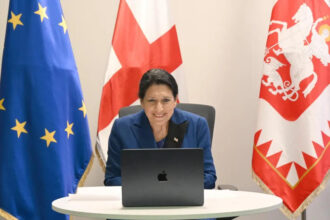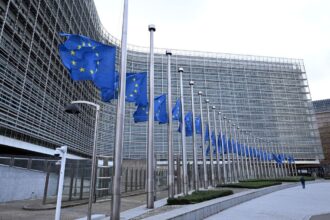Helsinki Commission report highlights concerns about the Georgian Dream‘s shift towards illiberalism, and a pro Russian stance. This is in contrast to the pro-Western aspirations expressed by the Georgian people.
In its report, “Preparing for Long-Term Threat from Russia,” the Helsinki Commission noted the South Caucasus region, including Georgia and Armenia, as well as Azerbaijan and Azerbaijan is at a crucial juncture because of changing political and strategic dynamics. The report highlighted that Georgia, once a reliable prowestern ally with ambitions to join the European Union and NATO is experiencing significant changes under the leadership the Georgian Dream Party.
The report of the Commission highlights the recent adoption by the “Georgian Dream’ government of illiberal policy and its increasing openness to Russia. This is in direct contradiction to the country‘s traditionally pro-Western orientation. The report highlighted the growing divide between government actions and the wishes of the Georgian population, which is largely in favor of integration with NATO and the EU.
This rift became particularly apparent in the spring of 2024 when mass protests broke out as a result of the government’s introduction a “Foreign Agents Law” modeled after similar Russian laws. The law, which was intended to impose stricter rules on organizations that receive foreign funding, was met with widespread opposition. Around 300,000 Georgians took part in the protests to show their opposition to the government’s perceived pro Russian direction.
The Helsinki Commission warned of the dangers that these developments pose to the stability of the region where Russia has a military presence. Despite the reduction of Russian forces as a result of its ongoing war in Ukraine, the combination between an anti-Western Georgian government and its increasing alignment to Russia poses a risk for regional security and Georgia’s international relations.
Read More @ www.interpressnews.ge













